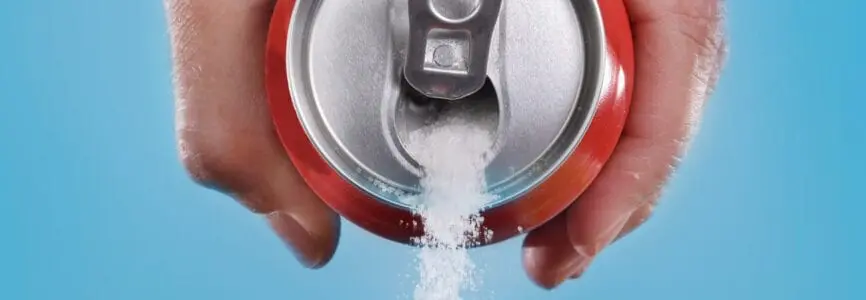Bioethics Forum Essay
Is it Time to Regulate the Sale of Sugar to Minors?
In “Tackling Obesity and Disease: The Culprit Is Sugar; the Response is Legal Regulation,” published in the Hastings Center Report, Lawrence O. Gostin describes four coordinated interventions that have been effective at controlling peoples’ tobacco consumption and which can serve as a “powerful model” for controlling peoples’ overconsumption of added sugar and particularly sugar-sweetened beverages. The four interventions are: advertising restrictions, labeling and warnings, taxes, and portion size restrictions (e.g., New York City’s short-lived ban on sugary drinks over 16 ounces).
I applaud Gostin for “kick-starting scholarly and political conversation” and “systematically laying out the major legal tools.” However, a key tool from the tobacco-control toolkit is absent from Gostin’s conversation. This is the ban on sales to minors. In the United States (and most developed countries), it is illegal for vendors to sell tobacco products to minors. In similar spirit, we should take seriously proposals that would make it illegal for vendors to sell items with a sufficiently high amount of added sugar to minors. (The restricted amount, as measured in percentage of calories, should at least cordon off sugar-sweetened beverages.) As is the case for tobacco sales to minors, no vendor or product should be exempt. As I argue elsewhere, such a restriction protects children’s right to an open future, and it would promote the public good by reducing the incidence of obesity-related health conditions.
Perhaps Gostin and others will construe such a proposal as a regulatory moonshot and thus unworthy of prioritized discussion? Such a reaction would not withstand scrutiny, for at least two reasons. First, it indulges and helps sustain the false narrative driven by corporate firms that profit from the sale of added sugar. As Gostin himself points out, added sugar and sugar-sweetened beverages offer zero nutritional value, pose significant individual health risks, and incur substantial medical costs to the public. In the case of tobacco products, there is wide agreement that this combination of harms and absent redeeming value justifies the prohibition of sales to minors. A rational focus on those factors that are legally and morally relevant demands that we consider a similar prohibition for items sufficiently high in added sugar. (The moral and legal parallelisms between banning electronic cigarettes and sugar-sweetened beverages for minors are especially compelling, as there are insufficient empirical grounds for claiming that electronic cigarettes pose greater health risks than sugar-sweetened beverages).
Second, the proposed intervention is uniquely positioned to address one of Gostin’s central concerns. Gostin points out that the “the tactics of Big Beverage companies [are] to mislead the public while donning the mantle of liberty – spouting about personal autonomy, parental responsibility, limited government, low taxation, and free speech. This leaves society in a bind. . .. Public health agencies have their hands tied…. America has placed the value of individualism on a pedestal . . ..” This is all true, but it leaves out that Americans fervently defend individualism and oppose paternalism primarily in relation to adult decision-making rather than child decision-making. For example, even staunch libertarians can balk at legally permitting a 10 year old to get a face tattoo without parental approval or sign up for a tour of military duty. The tobacco-inspired intervention I am proposing does not penalize or restrict adult decision-making. This contrasts with the interventions favored by Gostin, most of which penalize adult decision-making and risk offending deep-rooted American commitments to individualism.
But would banning the sale of items high in added sugar to minors help curb obesity? It surely would. Restrictive laws have a unique capacity to change the social meaning of a dangerous activity. With the policy I am proposing, parents and guardians would still have the legal freedom to provide items high in added sugar to their dependents (compare: in U.S. states such as Delaware, Massachusetts, Missouri, and Michigan, parents and guardians are explicitly excluded from laws that prohibit the transfer of tobacco products to minors). However, given the gradual effect of the proposed regulation on the social meaning of sugar, over time caregivers will likely start to regard giving children foods and beverages with a lot of sugar as more like providing electronic cigarettes or scratch-off lottery tickets and less like providing sustenance.
Gostin is correct that, in the public health battle against Big Sugar, it is a good idea to adopt proven strategies from the battle against Big Tobacco. I add to this that we should not overlook the strategy of banning sales to minors, even if (indeed because) the powerful messaging of Big Sugar may tempt us to construe such a suggestion as verboten.
Theodore Bach is an associate professor of philosophy at Bowling Green State University Firelands College.














While the speak is self confident, readers should be reminded that the sugar consumption is only the most trusted explanation of the obesity rising incidence. There is not experimental proof that such actions as limiting children’s access to sugar may reduce the obesity prevalence.
Before the efficacy will be shown in comparative studies, these restrictions are similar to the mass praying – its efficacy is in the eye of the believer
The obesity epidemic in the US is a scandal that is propagating because of lack of personal accountability and responsibility. Parents who are themselves obese and do not follow healthy lifestyles cannot be expected to teach their kids the priciples of healthy lifestyles. Besides being obese suits the pharmaceutical mafia and the medical community because treating these epidemics brings more money which is the current aim of american society. Make money at whatever cause seems to be the in thing. Regulation works only if people are receptive and responsible.